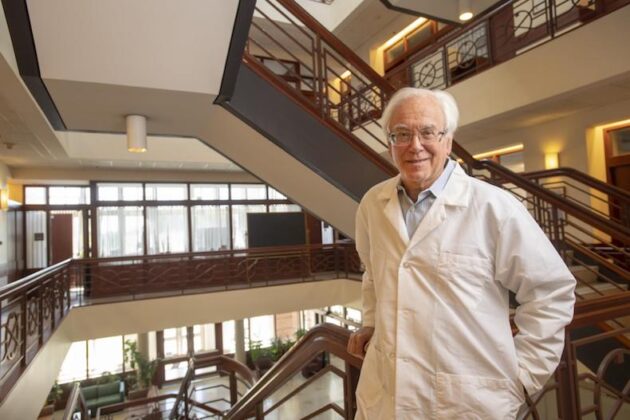DuPont Nutrition & Biosciences will collaborate with Rutgers University on research focusing on improving cancer therapy outcomes by reducing gut inflammation linked caused by chemotherapy.
The two year research pact will see DuPont’s Human Microbiome Venture (HMV) link up with the Center for Advanced Biotechnology and Medicine (CABM) at Rutgers to explore whether modulation of the microbiome can improve cancer treatment response rates.
Research will build on findings of previous work that shows orally delivered cancer drugs can induce enterocolitis, a condition that causes inflammation of the digestive tract and specifically affects the inner linings of both the small intestine and the colon – leading to vomiting and diarrhoea amongst other symptoms.
Specifically, the collaboration will explore whether the administration of beneficial microbes could lead to improving overall patient care and comfort while undergoing cancer treatment.
Cutting-edge research
Rutgers CABM, led by Dr Martin J. Blaser (photo above), has a mission to make fundamental discoveries and develop new technologies that can be translated to improve human health.
The centre has a research focus on cutting-edge, molecularly focused, basic research in infectious disease, cancer, and neurodevelopmental and neurodegenerative disorders, which sees the research teams focus on health conditions including AIDS, influenza, leukaemia, autism, and metabolic diseases.
CABM also has a core focus on promoting economic development through corporate collaborations, consultation, and technology transfer and provision of services.
“We are delighted to further develop our relationship with DuPont for the benefit of human health,” commented Dr Blaser. “The interaction of the microbiome with cancer is an important frontier, with important leads already.”
“Our project is aimed to discover new ways to improve cancer therapies.”
Sébastien Guéry, HMV leader at DuPont Nutrition & Biosciences said the organisation is ‘privileged’ to be working with Blaser and the Rutgers team. He noted that the project is targeted at improving patient care in those undergoing chemotherapy and will “combine the world-class science of Professor Blaser’s team with our broad portfolio of microbes to further advance the understanding of the intake of beneficial microbes on human health.”
DuPont’s microbiome focus
DuPont’s Human Microbiome Venture was launched in 2017 with an aim of spearheading the development of next-generation microbiome solutions for improved health and wellness.
The group has a goal to accelerate product development to complement its existing portfolio and build on DuPont’s expertise in prebiotics, microbes, proteins and enzymes use for human health.
Shortly after launching in 2017 the group partnered with the APC Microbiome Institute in Cork, Ireland, to focus on maternal and infant microbiomes, which play a critical role in infant development and long-term health.
Other collaborations include:
- a deal with Dutch biotech firm MRM Health to discover and develop therapies based on the human gut microbiome. (Feb, 2020)
- strategic investment and partnership with BioMe Oxford, an early stage start-up based in the UK which is developing a smart, orally delivered capsule that can sample gut microbiota in both humans and animals. (June, 2019)
- a further four-year research project with APC Microbiome, worth $7 million (€6.3 million), to develop solutions in infant health (March, 2020)
- research and development partnership with the Center of Food and Fermentation Technologies (TFTAK) in Tallinn, Estonia, focusing on cultivation and bioprocess development for “next-generation” probiotics. (March, 2018)
- a joint agreement with Lonza Consumer Health & Nutrition to manufacture and supply human milk oligosaccharides. (Feb, 2019)
- strategic collaboration focusing on the research and development of probiotic dietary supplements with “new functions, new ingredients and new technologies,” alongside BY-HEALTH, a leading consumer health care company in China (Sept, 2019)











